Welcome to HCPSL
Herbert Cane Productivity Services Ltd.


On Tuesday the 25th of July, HCPSL was on show with Herbert grower representatives attending a bus trip to HCPSL sites. Representatives from ACFA, AgForce, Herbert River CANEGROWERS and HCQR, as well as HCPSL Board members and staff, got to view firsthand the on-ground services and extension activities that HCPSL delivers to the Herbert cane industry.
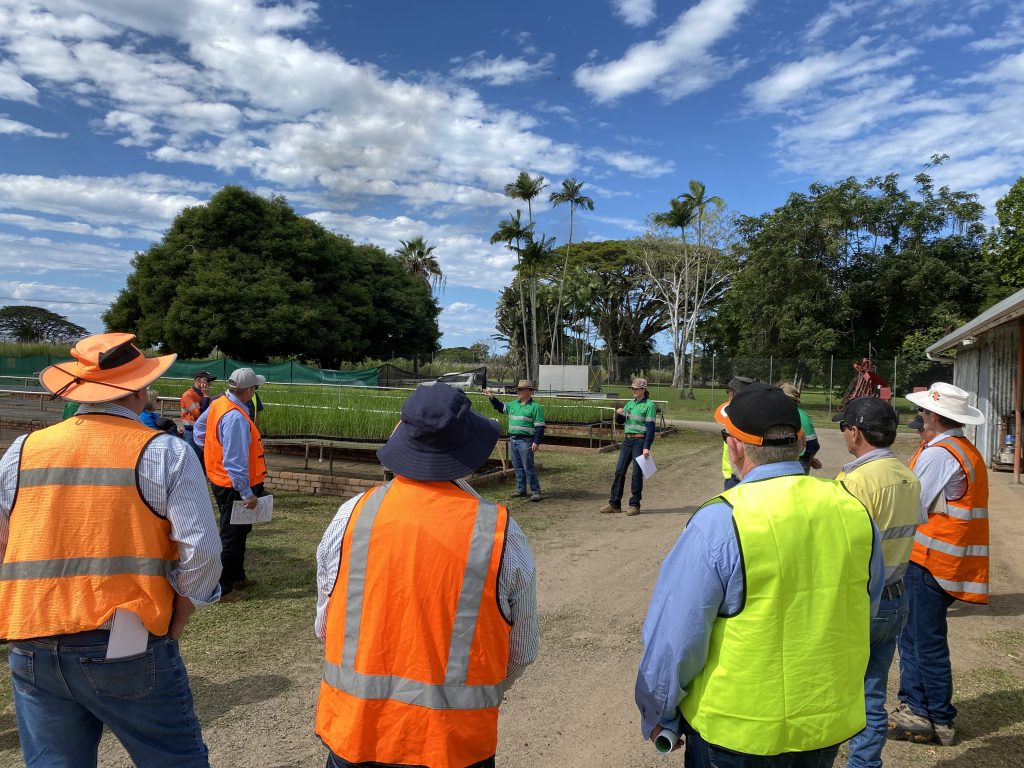
Photo above- Lawrence Di Bella (HCPSL Company Manager) and Rhiannan Harragon (HCPSL Field Agronomist) discussing Approved Seed cane options and tissue culture.
Grower representatives had presentations or viewed firsthand the following:
Rhiannan Harragon (HCPSL Field Agronomist) also presented data on the number of growers who requested RSD testing of seed cane for planting and the level of RSD infection. To date it was revealed that 69% of growers had not tested their seed cane prior to planting and that 9% of the samples tested were infected with RSD. The grower representatives all agreed it is very concerning growers were not testing their seed cane sources before planting and that there was a high level of RSD infection in growers seed cane. Growers are urged to purchase Approved Seed cane from HCPSL to curb the infection of RSD in commercial cane crops and to take advantage of the free seed cane inspection service HCPSL provides.
The day was very successful with Grower representatives leaving satisfied with the services being provided by HCPSL to their members.
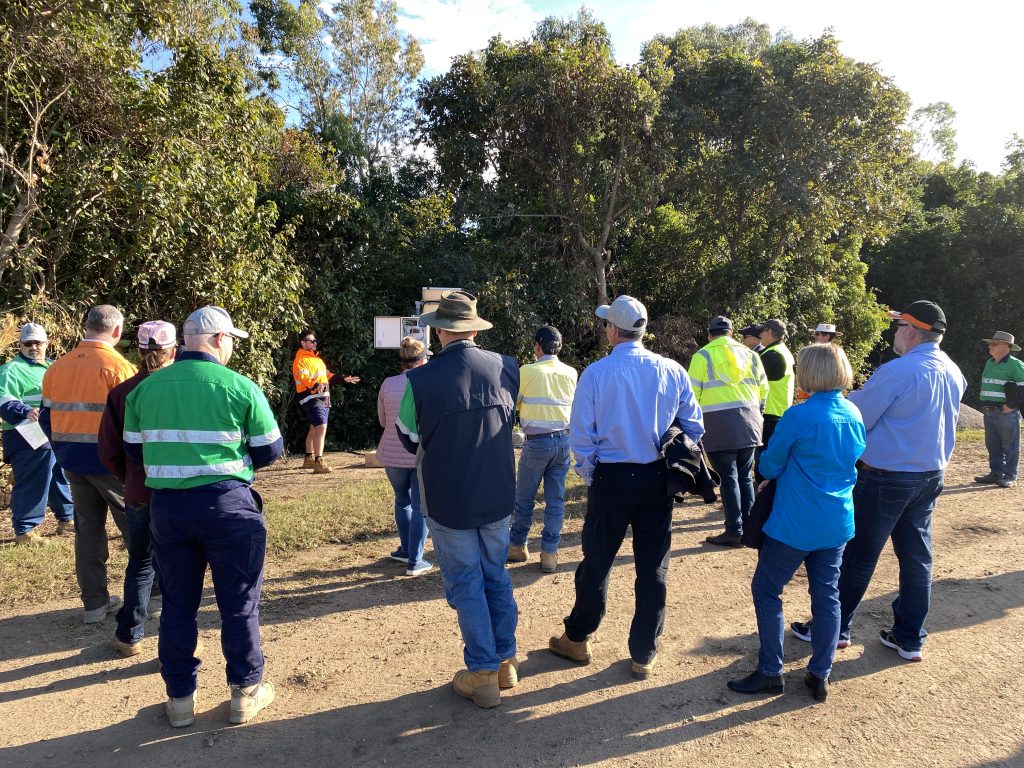
Photo above- Adam Royle (HCPSL Senior Extension Agronomist) and Luke Buono (JCU Tropwater Water Quality Technician) presenting to the delegates.
For more information on the services offered by HCPSL please refer to the company website- www.hcpsl.com or contact the Company Manager- Lawrence Di Bella.
Earlier this week, projects under the Lower Herbert Water Quality Program (LHWQP) presented to Ingham State High School Ag students.
HCPSL staff members from Project CaNE and Project Catalyst had the opportunity to discuss and share knowledge with around 30 Year 10 and 11 students studying Agriculture.
The Project Catalyst team discussed soil testing, in particular how soil pH affects crop growth and nutrient availability. Students were eager to get practically involved by carrying out pH testing with a simple in-field testing kit.
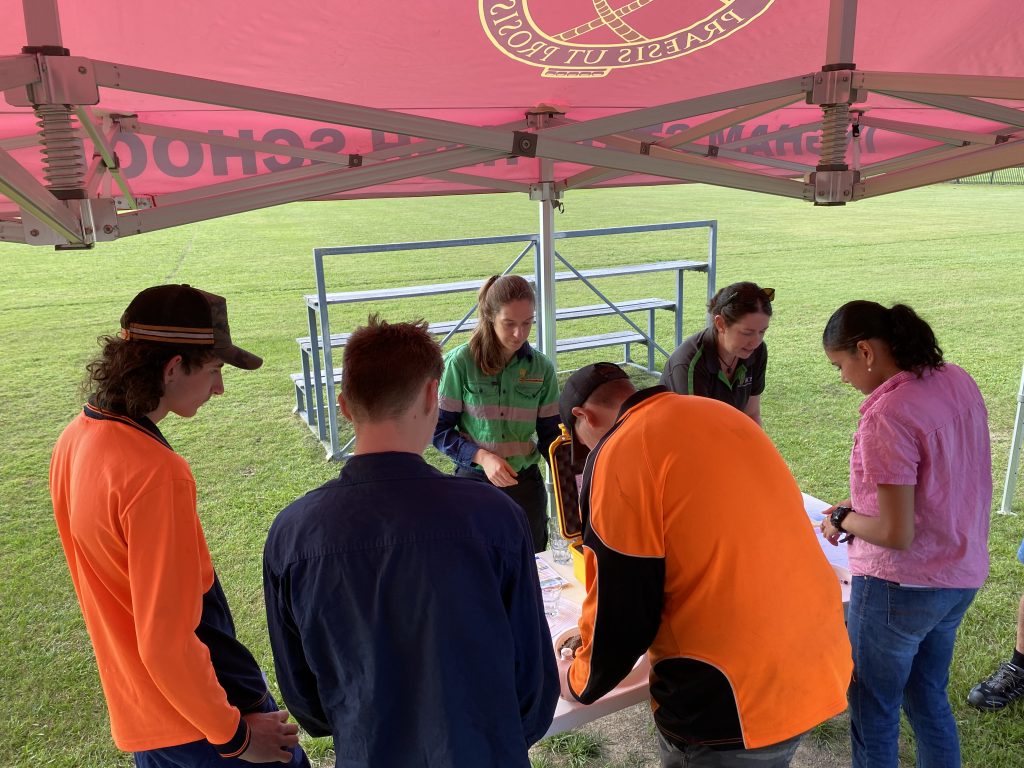
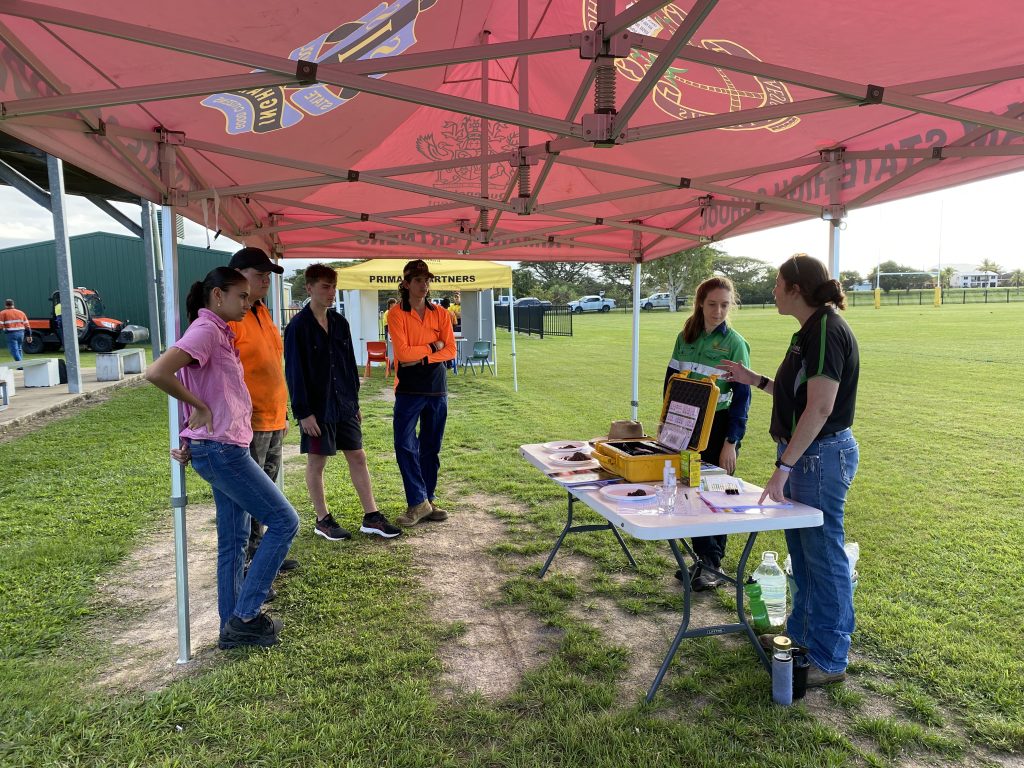
Project CaNE, together with TropWATER provided students an understanding on sugarcane crop nutrition as well as water quality. Aaron Davis from TropWATER gave students insight into water quality monitoring and sampling.
Additionally, HCPSL & Project CaNE GIS Officer Rod Nielson showcased the use of drone technology in agriculture and how precision agriculture is being applied to the Herbert cane industry.
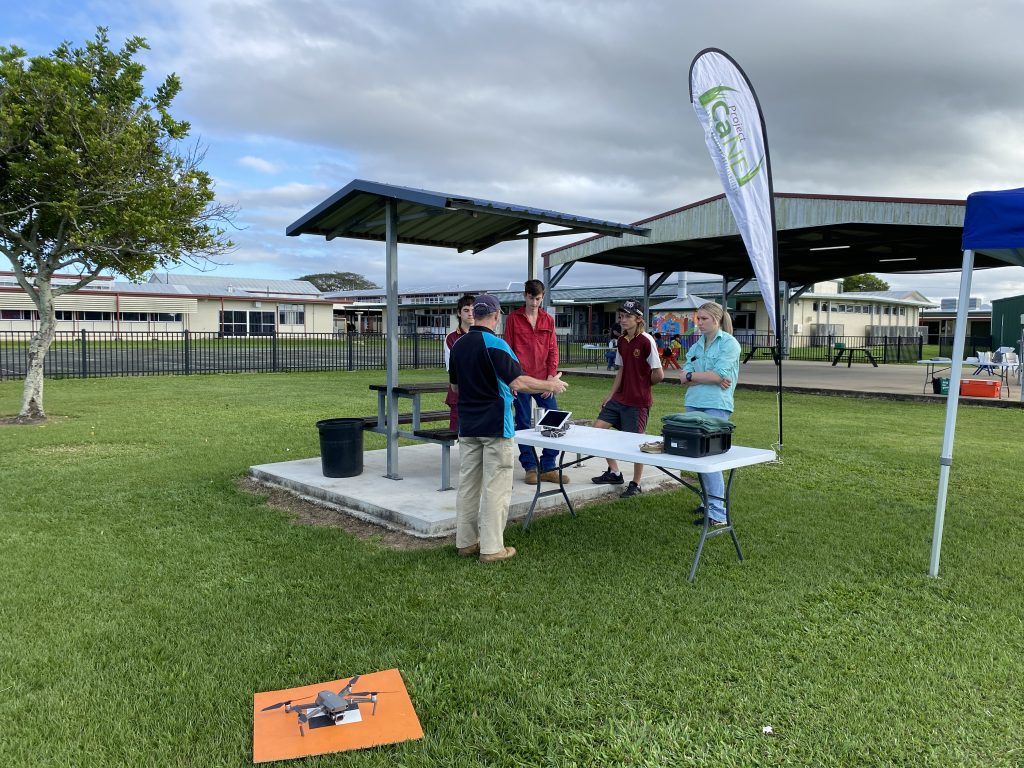
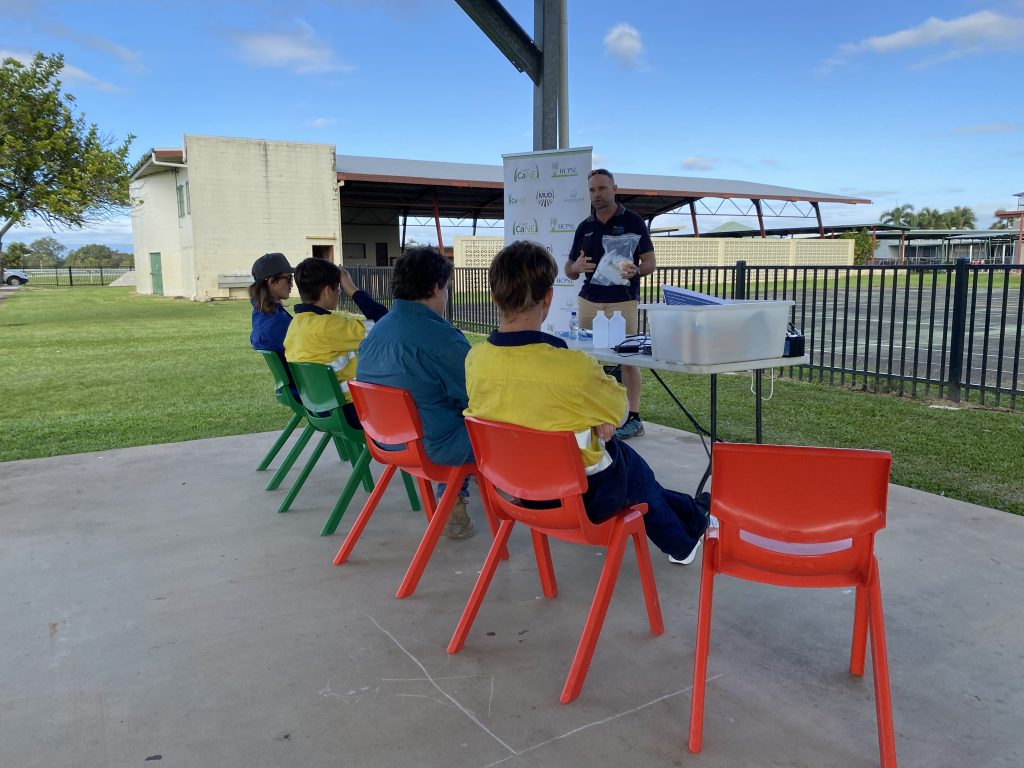
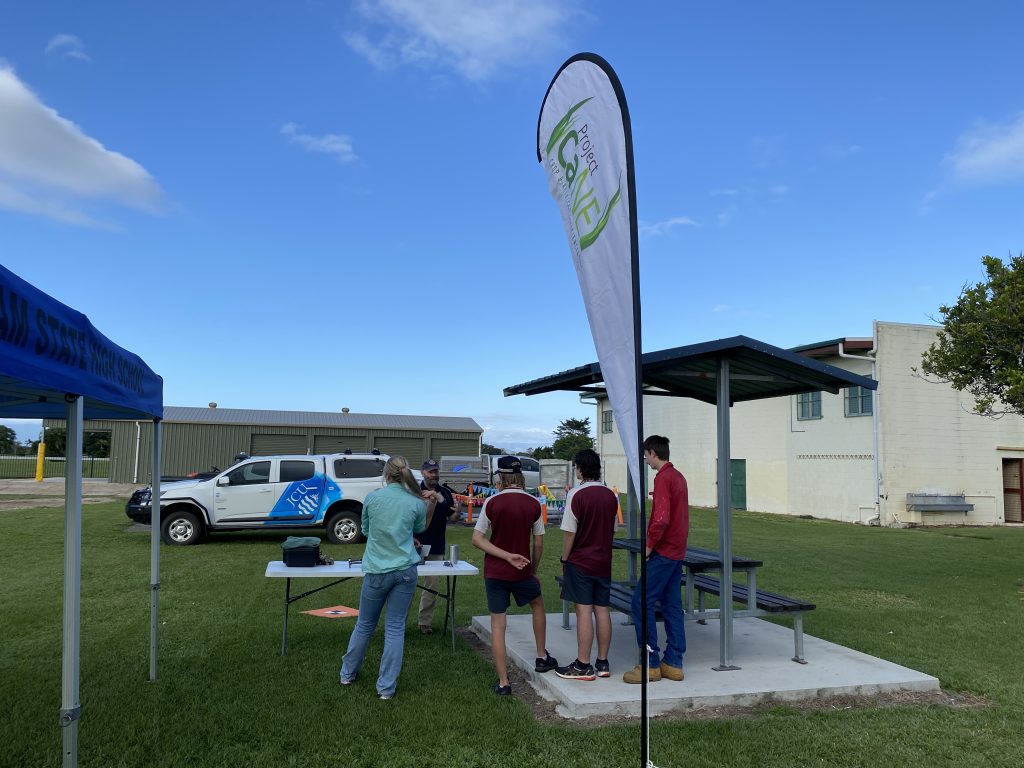
Thanks to Ingham State High for hosting and LHWQP Program Coordinator Carola Bradshaw for organizing a great event. HCPSL value the opportunity to share knowledge and discuss topics with passionate local ag students.
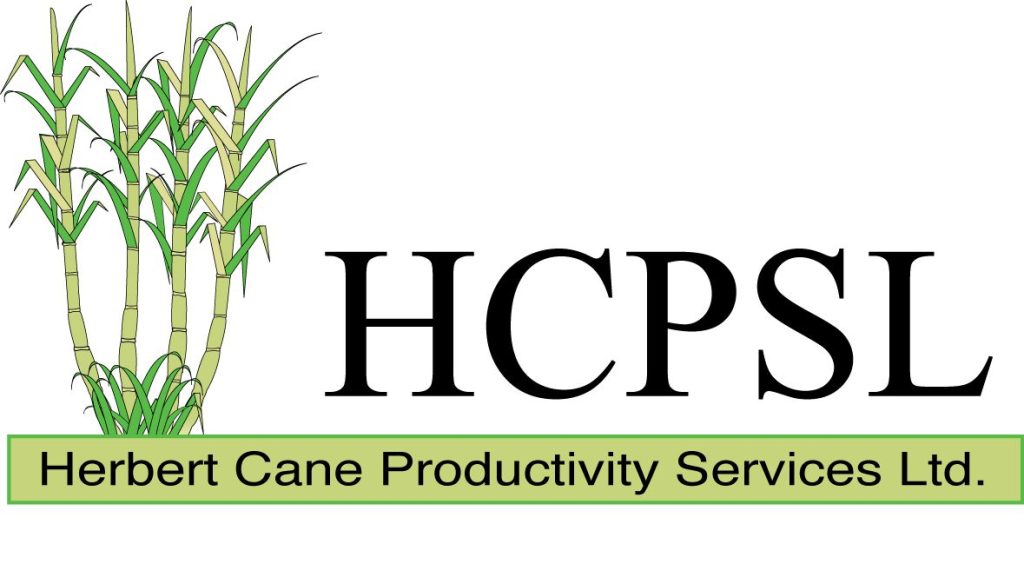
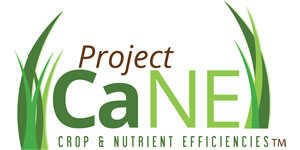
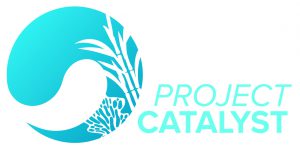

Project CaNE™ and Project Catalyst are funded by the partnership between the Australian Government’s Reef Trust and the Great Barrier Reef Foundation.
Yesterday, HCPSL met with Grower Collectives representatives and a number of planting contractors to investigate ways to better manage RSD and the adoption of Approved Seed cane.
HCPSL Company Manager Lawrence Di Bella presented data on the level of infection in growers “supposedly clean seed cane” to be used for commercial planting for the past 3 and current year.
| YEAR | PERCENT INFECTION |
|---|---|
| 2020 | 9% |
| 2021 | 7% |
| 2022 | 9% |
| 2023 | 9.1%, year to date. |
These figures are very concerning and really indicates that growers must be very valiant with their farm hygiene and obtain Approved Seed on a regular basis to get on top of this disease.
HCPSL, currently has around 5000-6000t of Approved Seed cane available through its plots this year, with orders for only for about 4000t at present. Not all varieties are available, but there are considerable volumes of MQ239, Q200, Q208, Q253, SRA26 and SRA31 still available. Growers who are seeking more of these varieties are asked to contact HCPSL staff to arrange collection of this cane.
HCPSL has wholestalk and billet harvesters in most plots now days making it easier for growers to access Approved Seed cane.

This year growers have the option for Hinchinbrook Towing Service- 0400 702 113 to collect cane from the Approved Seed plots on a fee for service arrangement. Whole stalk trailers can be collected from farm, dropped off to the appropriate HCPSL Approved Seed plot farm and then returned when filled with cane. Another option available is the collection of billets from the plots and delivered to your billet planter for planting.
Research undertaken by HCPSL and SRA clearly shows that growers who use Approved Seed cane for planting on average have a 13% increase in financial returns when compared to growers who don’t use Approved Seed cane.

Getting cane from the neighbour is not “clean” cane! Your neighbours may have RSD present in the cane you are getting from them.
Ask your self- “When was the last time when I purchased Approved Seed cane from the HCPSL plots, used tissue culture cane or long hot water treated cane?”
It is time now to get Approved Seed cane for your farm for next year and don’t forget to sterilise all your planting equipment before you plant it!
Contact your HCPSL officer to obtain Approved Seed cane- 47761808.


Project Squealer™
An initiative of the Hinchinbrook Community Feral Pig Management Program.
“The Queensland Feral Pest Initiative (QFPI) provides funding from the Queensland Government and Australian Government.” QFPI Round 6- has funded this project.
PROJECT UPDATE
Use of GPS/Radio tracking collars and “Judas” pigs
The Hinchinbrook Community Feral Pig Management Program (of which HCPSL is a partner) was successful in obtaining funding to investigate “Novel technologies to better manage feral pigs.”
As part of the project, the research team has commenced activities using GPS/Radio tracking collars fitted to “Judas” pigs. It is envisaged that the use of GPS tracking in conjunction with drone and thermal imagery cameras will allow the program to gain a better understanding of feral pig population numbers and habitat utilisation.
The project team has been working with the Queensland Department of Agriculture and Fisheries (DAF) to seek approval to fit tracking collars to 3 female feral pigs. A permit to Use Animals for a Scientific Purpose has been sort and approved via a Grant of Application for Registration as a Scientific User- HCPSL (Reg No. SUR001683). DAF have appointed Dr. Bronson Logan (DAF veterinarian) to assist the project team with fitting the GPS/ radio tracking collars.
The project team have purchased the following items with the research funding in preparation for the fitting of the GPS radio tacking collars:
A few weeks ago, 3 young sows were captured within the Hinchinbrook Shire, fitted with SIR GPS/radio tracking collars, and released back into the wild at 3 different locations. These feral pigs will be now tracked over the next few months to gain useful information on their movements, the habitats they utilise and hopefully congregate with other pigs with which they will roam, to provide intelligence on how to manage the larger populations of feral pigs across the district. It is intended that the information collected will provide strategic insights to program partners on how to better manage feral pigs across the shire longer term.
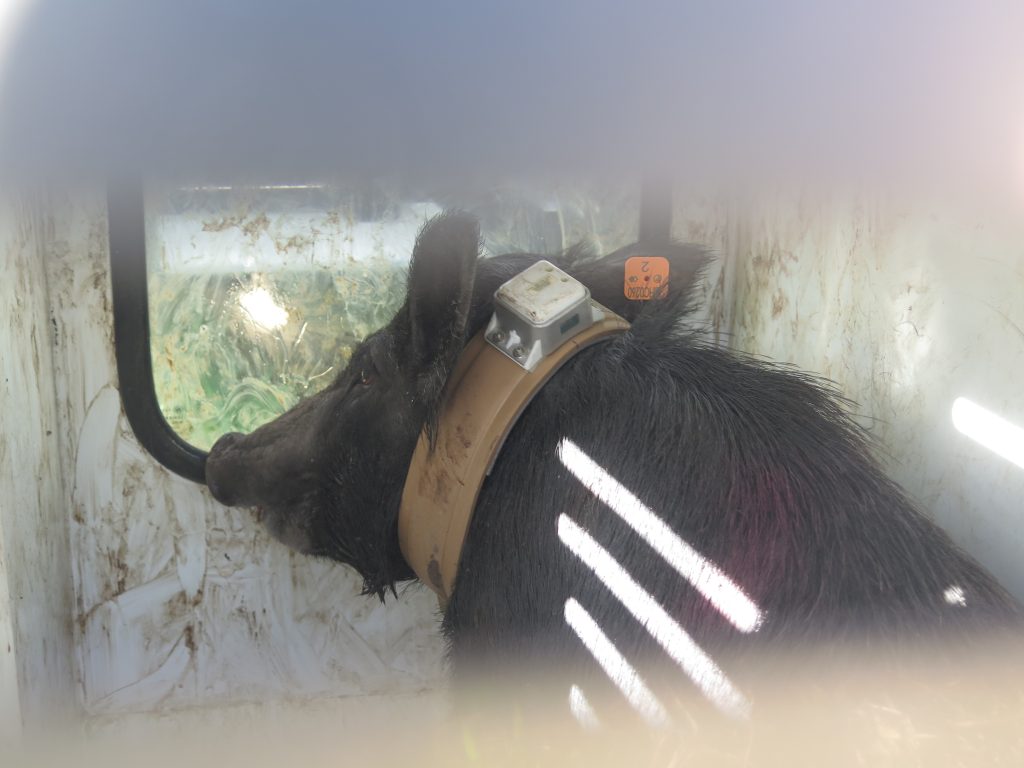
We are asking the farming and general community to assist the research project by not deliberately killing these collared pigs if it can be avoided. If you have accidentally killed one of the pigs fitted with the SIR GPS/radio tracking collar, we ask that you please return it to the Hinchinbrook Shire Council office (contact phone numbers are on the collar) or the HCPSL office, so that our valuable research can continue. Your assistance would be greatly appreciated.
If you have any questions pertaining to Project Squealer or the Hinchinbrook Community Feral Pig Management Program, please contact: Lawrence Di Bella (HCPSL Company Manager) on 0448084252 or Matthew Buckman (HSC Biosecurity Team Leader) on 0439005471.
Attention Herbert Growers – Please note price increases as of the 1st July 2023.

Recently, HCPSL Company Manager, Lawrence Di Bella presented and attended the 2023 Australian Organics Recycling Association (AORA) Annual Conference.
The AORA Annual Conference is the principal conference in Australia for the recycled organics industry. Each conference is a forum for education, discussion and networking related to Organics Recycling.
To view conference proceedings and presentations CLICK HERE.
You will be required to enter the password – future
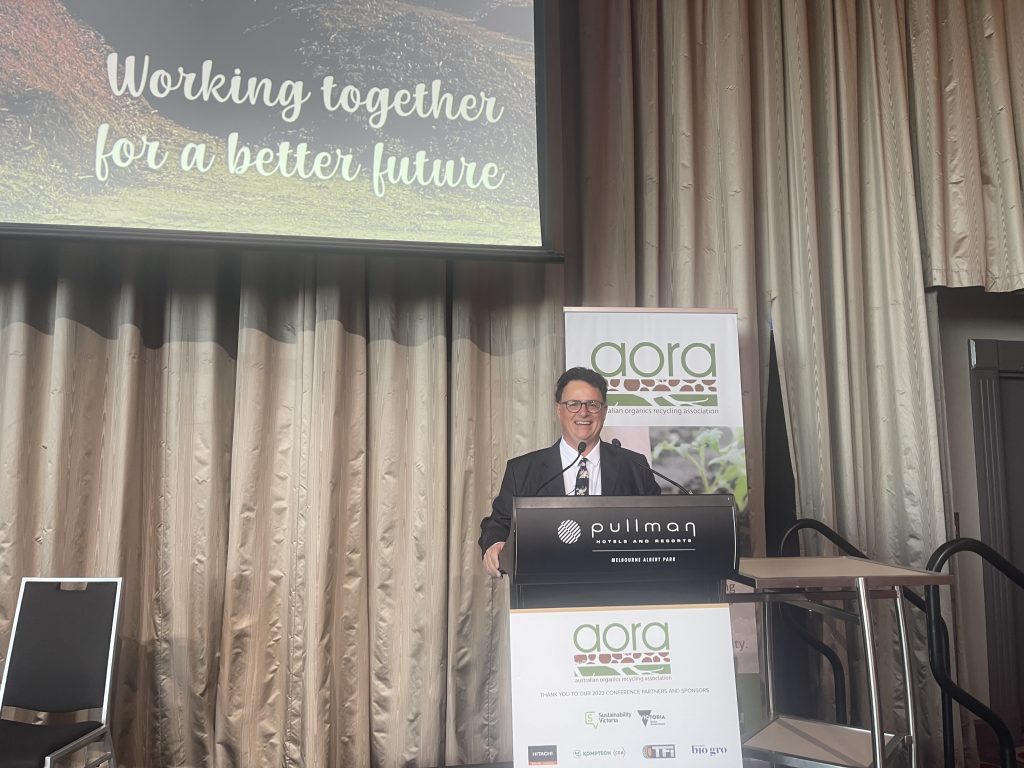

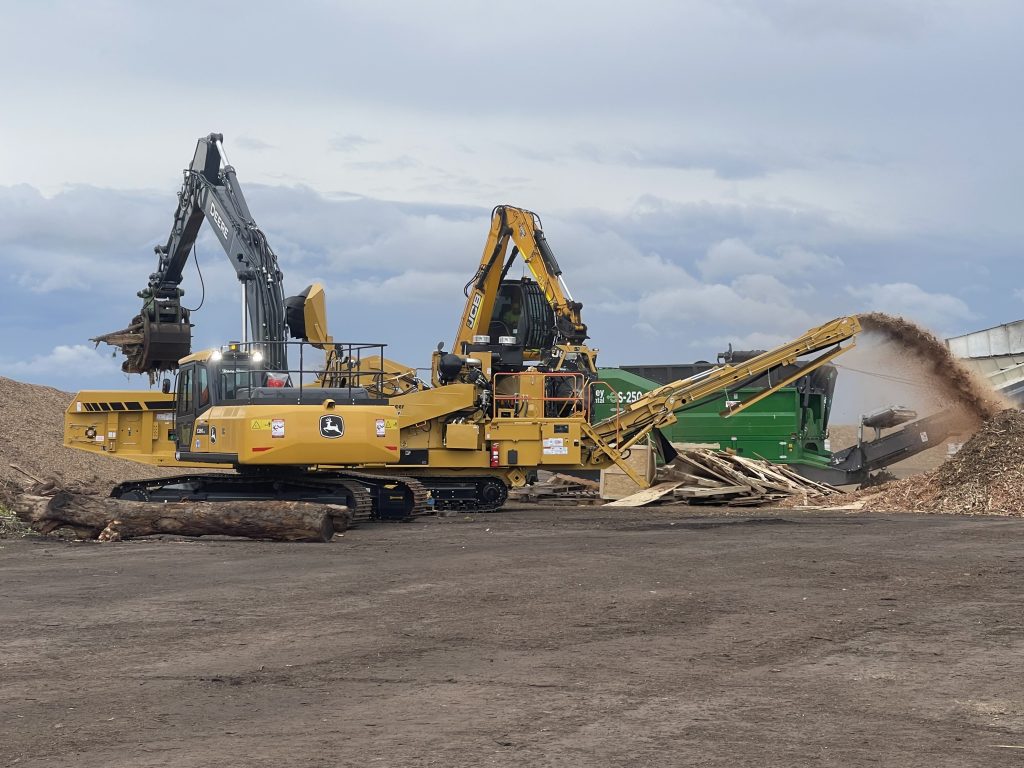
Considering applying Moddus® on your farm?
Abergowrie grower, John Russo discusses how he utilises applications of Moddus® on his property.
John shares insight into his experience using the product. “We target our river flat country, which is low and gets flooded easily. The idea is, to make sugar. We can cut the crop first or second round, then the ratoon cane is up and away before Christmas floods.”
Want to know more? Contact HCPSL on (07) 4776 1808 to speak with Project Catalyst team members – Megan or Bethany.
Project Catalyst is funded by the partnership between the Australian Government’s Reef Trust and the Great Barrier Reef Foundation, the Coca-Cola Foundation and WWF-Australia.


Natural disasters, droughts, financial stress, and geographic isolation are some of the challenges faced by people in regional and rural Queensland.
These adversities often have a significant impact on entire communities, families, and the local economy.
However, the impact on mental health and wellbeing can be overlooked and, due to the remoteness and lack of supply, accessing appropriate services can be more challenging than in urban areas.
The Royal Flying Doctor Service is working towards increasing access to mental health services in regional and rural Queensland through the development and distribution of the new book ‘Mental Health and Wellbeing on the Land’.
This valuable resource, which has been funded by a grant provided by Thankful4Farmers, aims to provide support to individuals and families who are struggling with mental health issues and help break down the barriers that prevent people from seeking help.
Download a copy of ‘Mental Health and Wellbeing on the Land’ via the link below.
Outback Mental Health | Royal Flying Doctor Service

Have you ever thought about Moddus® or Grappa?
With lower-than-average CCS in last year’s cane crop and high sugar prices on the market again this season, growers are looking at ways to increase CCS value in their crops for the upcoming harvest season.
Moddus® & Grappa are products with a foliar-absorbed plant growth regulator that has been shown to increase sugar yield. The products give growers opportunities to improve early and late CCS in their crops as a harvest management tool to increase grower profitability.
Interested in learning more about these products? View the Project Catalyst Factsheet below.
Project Catalyst is funded by the partnership between the Australian Government’s Reef Trust and the Great Barrier Reef Foundation, the Coca-Cola Foundation and WWF-Australia.


Recent Comments